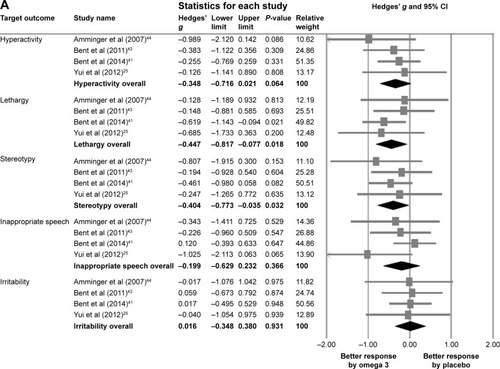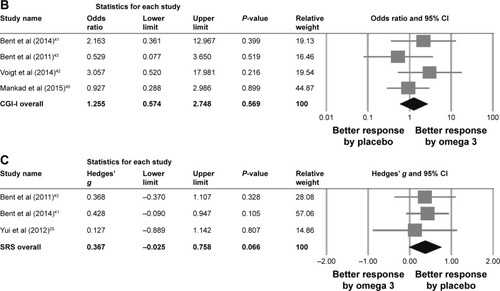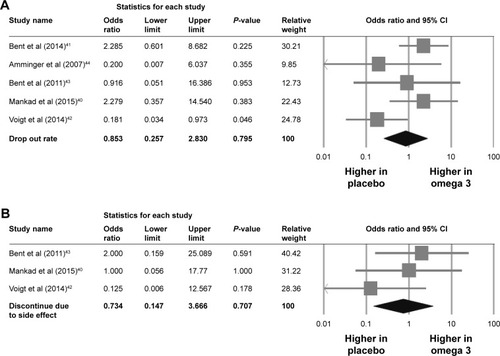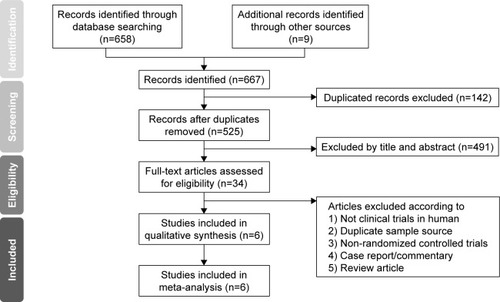Figures & data
Table 1 Summary of characteristics of studies in current meta-analysis
Figure 2 Meta-analysis of difference of primary outcome, in aspects of (A) changes of ABC, (B) clinical improvement, and (C) changes of SRS total scores, in ASD children treated with omega 3 and placebo.
Abbreviations: ABC, Aberrant Behavior Checklist; ASD, autism spectrum disorder; CGI-I, Clinical Global Impression – Improvement; CI, confidence interval; SRS, Social Responsiveness Scale.


Figure 3 Meta-analysis of difference of (A) dropout rate and (B) rate of discontinuation from study due to side effect in ASD children treated with omega 3 and placebo.
Abbreviations: ASD, autism spectrum disorder; CI, confidence interval.

Table 2 Summary of clinical features of participants in included studies

